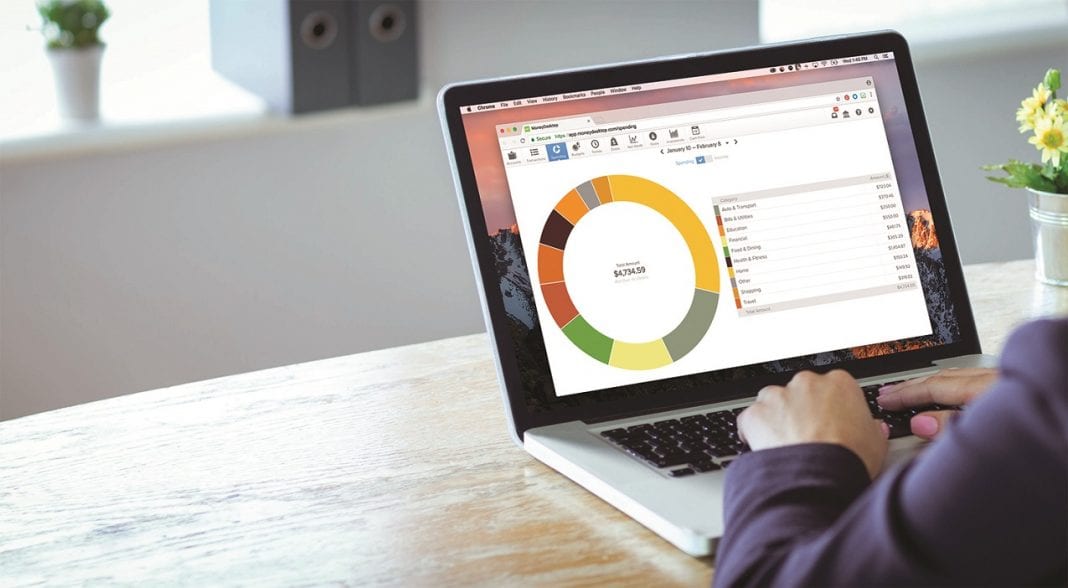For many of us, budgets are scary. Monitoring every dollar spent, planning for the future, realizing how much that daily coffee adds up…it feels overwhelming. But there’s no exclusive, official way to do it. Your budget is as unique as you are. It’s a way to track, organize, and understand how your money moves. Thanks to guidance from Heritage Bank, budgeting is easier than ever.

“Determine why you want a budget and what your financial goals are,” encourages branch relationship manager Aram Wheeler in West Olympia. “Are you saving for a down payment, building an emergency fund, paying off debt, or simply trying to reduce overspending? Once you have an idea of what you want, you can tailor your budget to fit your needs.”
Because goals are flexible, there are no age or income limits. Whether your income is weekly allowance, executive salary, or a Social Security check, it’s always a good idea to monitor. “Setting a monthly budget is a great way to see what worked and what didn’t and allows you to make adjustments if things change,” explains Wheeler. “It’s also a good idea to take a look at your budget when your finances change significantly. The most important part is staying consistent and finding what works for you.”
The Bureau of Labor Statistics shows that for most Americans, 32 percent of income goes towards housing, 19 percent towards health care and insurance, 17 percent towards transportation, and 12 percent towards food. With expenses, student loan or credit card debt, and other costs, it’s reported that “about 49% of Americans are ‘concerned, anxious or fearful about their current financial well-being’ [and] 19% have $0 saved to cover an emergency expense.”
Let skilled advisors, like those at Heritage Bank, help. As they say, “Budgeting can either make or break your financial stability. Financial mistakes occur from time-to-time so it’s important to know how to reduce your chances of making them, and having a solid budget will help you maintain your financial freedom.”

Their five simple tips are to be flexible, plan for yearly expenses, write down your expenses, don’t be too frugal, and avoid impulse buying. The last two may seem contradictory but make perfect sense. “Think of budgeting like going on a diet. If you are too careful and only do the minimum, you’ll binge at some point, throwing all your hard work down the drain. It’s okay to treat yourself occasionally—in fact, you should budget to do so!”
But, say advisors, pay attention. “If you buy a pack of gum in the checkout lane every time you go to the grocery store, and you go to the grocery store twice a week, that seemingly inconsequential purchase is costing you about $8 a month (or almost $100 a year),” they warn. “No matter how inexpensive these impulse buys are, they will add up eventually.” By noticing this little habit, which may have slipped below your radar for years, you can opt to buy a multipack of gum at Costco and save nearly $75.
Consider using an online tool like Heritage’s Money Management. This allows you to track spending, budgets, trends, cash flow, goals, and net worth. You’re even able to set up alerts that sound when you exceed your budget, have a large expense or deposit, or a payment is due.
If you haven’t already, Heritage Bank can also help with savings. “A savings account is a great option if you want to earn interest while still being able to withdraw money in case of an emergency,” says Wheeler.

Their other tools include Save Up, which does the work for you. With Save Up, the program automatically “rounds every purchase to the nearest dollar and transfers the excess amount to your savings account.” With Card Valet, “Real-time alerts keep you informed when your cards are used, transaction controls allow your cards to work only in specific locations or geographic areas, [and] set spending limits for general use or specify thresholds by merchant types, such as gas, groceries or retail stores.”
Author William Feather once bemoaned that “A budget tells us what we can’t afford, but it doesn’t keep us from buying it.” But with a helping hand from people who do this for a living, it’s not as hard as you may think. Find a Heritage Bank branch near you and make an appointment to learn how to manage your money, your way. Follow them on Facebook, Twitter, or Instagram for events, ideas, and helpful tips.
Sponsored










































